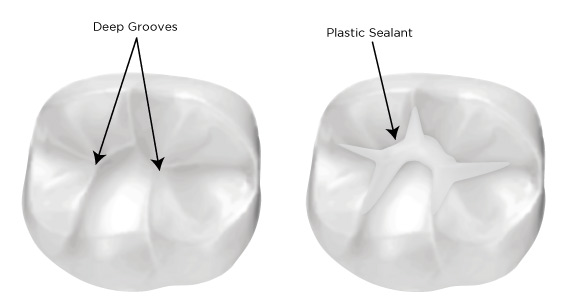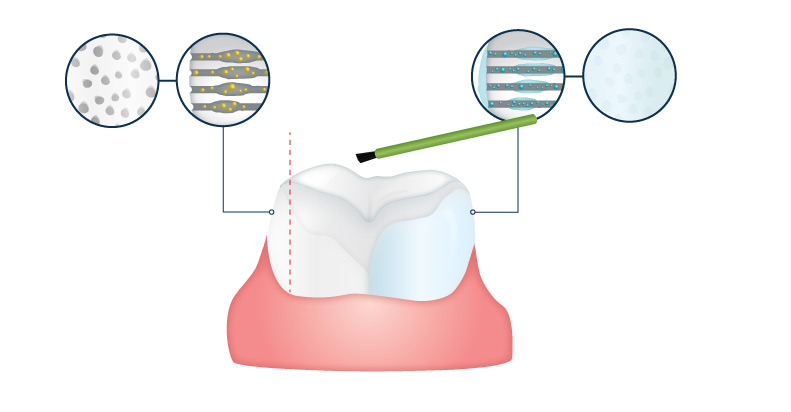Pediatric Dentistry
Dental Exam
A comprehensive dental exam is critical to your ongoing dental health and can only be performed by your dentist. At your initial dental appointment we ask that you arrive 15 minutes early and plan to spend 60-90 minutes in our office. Your first appointment will include a comprehensive oral examination as well as dental x-rays to help assess your oral health.
A dental exam can catch problems before you see or feel them. Identifying problems early makes them easier and less expensive to treat.
Your dentist will be looking for:
- Tooth decay and damage.
- Signs of cavities.
- Periodontal (gum) disease.
- Signs of oral cancer.
- Condition of previous dental work.
- General condition of your face, mouth and jaw.
Dental Cleaning
The professional cleaning of teeth is sometimes referred to as dental prophylaxis (or prophy for short). The primary function of a dental cleaning appointment is the prevention of cavities (dental caries), gingivitis, and periodontal disease. Regular dental cleanings are the cornerstone for a lifetime of dental health.
Your cleaning appointment will include a dental exam and the following:
- Removal of tartar from above and below the gum line.
- Removal of plaque that forms on the teeth causing tooth decay and periodontal disease.
- Teeth polishing to remove superficial stains and plaque not removed during tooth brushing and scaling.
Sealants
Dental sealants are thin plastic coatings that are applied to the grooves (called pits and fissures) on the chewing surfaces of the back teeth and act as a barrier to prevent cavities. The majority of tooth decay occurs on these surfaces because brushing and flossing can't always get into all of the nooks and crannies of the back teeth. Sealants protect the chewing surfaces from tooth decay by keeping germs and food particles out of these grooves.
The likelihood of developing pit and fissure decay begins early in life, so children and teenagers are obvious candidates. However, adults can benefit from sealants as well.

Composite Fillings
Composite fillings are a tooth-coloured restorative material used to repair a damaged or decayed tooth. The affected portion of the tooth is removed and then filled with the composite filling.It is then cured with a visible blue light which causes it to harden almost instantly.
Composite resin dental fillings are strong, durable, and make for a very natural looking smile. Your dentist or dental hygienist may recommend composite resin dental fillings for the following reasons:
- To restore chipped or worn teeth.
- To close a space between two teeth.
- To repair cracked or broken teeth.
- To repair damage caused by tooth decay.

Fluoride Treatment
Fluoride is a mineral that exists naturally in soil, water and various foods. Fluoride works by strengthening the tooth enamel making teeth stronger and more resistant to acid attacks from plaque bacteria and sugars in the mouth. All people ingest the mineral to some extent on a daily basis. In addition, approximately 40% of Canadians receive fluoride in their community water supply.
Although most people receive fluoride from food and water, sometimes it is not enough to help prevent decay. Your dentist or dental hygienist may recommend the use of home and/or professional fluoride treatments for the following reasons:
- Deep pits and fissures on the chewing surfaces of teeth.
- Exposed and sensitive root surfaces.
- Poor oral hygiene habits.
- Inadequate exposure to fluoride.
- Poor saliva flow due to medical treatments, conditions or medications.
- A history of dental decay.

Tooth Extractions & Wisdom Teeth
A tooth extraction is the process of removing a tooth from the mouth. There are a number of different reasons why a tooth may need to be extracted. In most cases, teeth have to be removed because they too badly damaged or decayed to be repaired.
Most people develop wisdom teeth around 18 years old. It is important to assess whether there is room for them in a patients mouth and if they are going to affect other teeth. Wisdom teeth commonly affect other teeth as they develop and can become impacted. Wisdom teeth are often extracted when or even before this occurs.
We may recommend an extraction for one of the following reasons:
- Injuries and accidents
- Periodontal disease
- Overcrowding
- Dental abscess
- Dental decay
